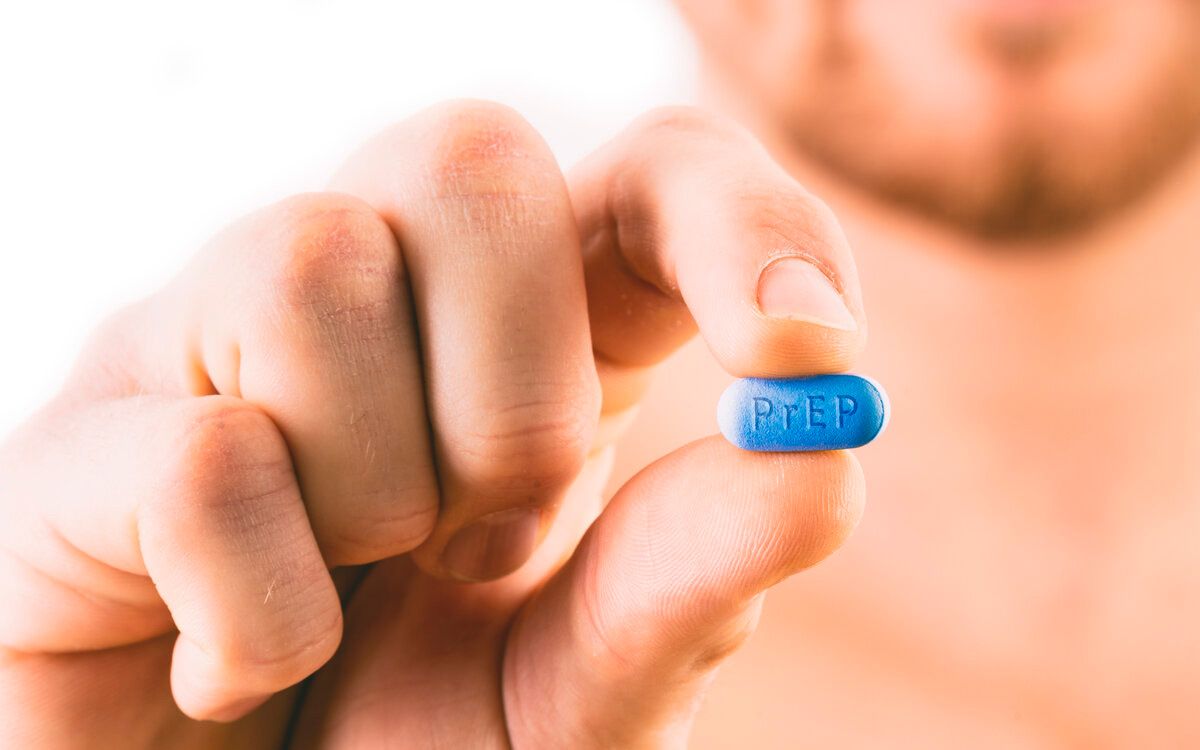Where to get PEP in an HIV emergency!

Do you think you have been exposed to HIV? It's vital that PEP is started as soon as possible after any possible exposure to HIV — preferably within a few hours.
This gives the drugs the best chance to work against HIV before it becomes established in the immune system. PEP should be started as soon as possible but may be taken up to 72 hours after the exposure.
How do you get PEP in Canberra ACT
Business hours you should contact:
- Canberra Sexual Health Centre: 6244 2184
- Interchange General Practice: 02 6247 574
After hours you should contact:
The Hospital Emergency Department:
- The Canberra Hospital: 6244 2222
- Calvary Hospital: 6201 6111
How do you get PEP in Sydney NSW
Business hours you should contact:
Taylor Square Private Clinic: 1800 751 360
After hours you should contact:
PEP Hotline: 1800 737 669 - 24 Hours, 7 days a week.
How do you get PEP in Melbourne VIC
PEP Phoneline: 1800 889 887
Phoneline is staffed 9am-5pm, Monday to Friday.
Other times there is a detailed recorded message with many options.
getpep.info/get-pep-now/vic
If you want to talk to someone about PEP you can call:
- 24hr PEP Hotline: 1800 737 669
- Canberra Sexual Health Centre: 02 6244 2184
- AIDS Action Council of the ACT (Mon-Fri 9am-5pm): 02 6257 2855
- ACON Health (NSW): 02 9206 2000
- HIV Support Services
What is PEP?
PEP, or post-exposure prophylaxis is a 4-week course of anti-HIV drugs that are taken shortly after possible exposure to HIV infection. Taking the drugs may help reduce the risk of acquiring HIV if you have an exposure to the virus.
When should I take PEP?
It is recommended that PEP be started as soon as possible after the exposure to HIV – preferably within a few hours. This gives the drugs the best chance to work against HIV before it becomes established in the immune system. PEP should be started as soon as possible but may be taken up to 72 hours after the exposure.
Who should take PEP?
Anyone who has had risky contact with a person who has HIV, or who may have HIV, should consider taking PEP. This risky contact may include unsafe sex, sharing injecting equipment, needlestick injury or other blood exposure. It is important to discuss the need for PEP with a health care provider trained in using anti-HIV drugs, or with clinical staff at a hospital Emergency Department. Together, you can determine your risk of acquiring HIV and decide whether you should take PEP. If you are pregnant, think you might be pregnant, or are breastfeeding, discuss this with your health care provider before starting PEP.
What is involved in taking PEP?
PEP involves taking a 2 or 3 drug combination once or twice daily for four weeks. The drugs need to be taken at certain times of the day and may need to be taken with food. It is very important not to miss any doses of PEP to give it the best chance of working. If seen at an Emergency Department or Canberra Afterhours Locum Medical Service (CALMS), you will be given a starter pack so you can commence PEP immediately. This pack only has enough pills for a few days. To continue PEP, you will be referred to a doctor or sexual health centre for a script for ongoing supply.
Does PEP have side effects?
Yes. Taking drugs used in PEP can cause side effects such as nausea, diarrhoea, headaches, tiredness and a rash. Rarely, more serious side effects have been reported. You should discuss the possible side effects and how to manage them with your health care provider.
Will I need blood tests?
If you decide to take PEP, “baseline” blood tests will be done to check your current status for HIV, hepatitis B and C. Tests for other sexually transmitted infections (STIs) may also be recommended, either when you are prescribed PEP, or at your follow up visits.
Does PEP work?
Studies done with health care workers show that their risk of becoming HIV positive after a needlestick injury is significantly reduced by using PEP. These studies suggest that it is also possible to reduce the risk of getting HIV by prompt use of PEP after possible sexual or injecting exposure. PEP will NOT COMPLETELY ELIMINATE this risk.
Do I still need follow up after completing PEP?
Yes, follow-up is very important. If you take PEP, blood tests for HIV are repeated at these times after the exposure: at 6 weeks and again at 3 months
What else do I need to know while taking PEP?
- PEP is not guaranteed to stop you from being infected with HIV and it is not a replacement for safe sex and safe injecting practices
- Taking PEP will not make you immune to HIV
- Women should use effective birth control to avoid pregnancy whilst on PEP
- HIV testing will need to be repeated at 3 months after you commence PEP. This is called the window period (the time it can take for HIV to show up in tests). You need to protect others during the 3 month window period by using condoms, and not sharing injecting equipment
- Do not donate blood, sperm, organs or tissue while on PEP and within the 3 month window period
- If you miss a tablet, take the dose as soon as you remember and seek advice by calling your GP, sexual health service or the PEP Hotline as to how you should continue to take the drugs
Useful websites
- acon.org.au/hiv/pep
- aidsaction.org.au
- afao.org.au
- ashm.org.au
- health.act.gov.au/cshc
- HIV Support Services
References: Australasian Society for HIV Medicine. Post Exposure Prophylaxis after Non-Occupational and Occupational Exposure to HIV National Guidelines. Accessed ashm.org.au 
Please Note: This information page is designed to provide you with general information only. It is not intended to replace the need for a consultation with a health practitioner. You are advised to enquire about any specific questions or concerns you may have with a health practitioner. Every effort has been made to ensure that this information is correct at the time of publishing.









